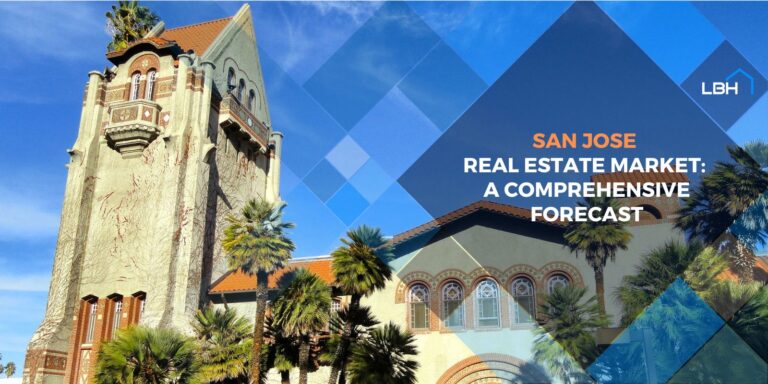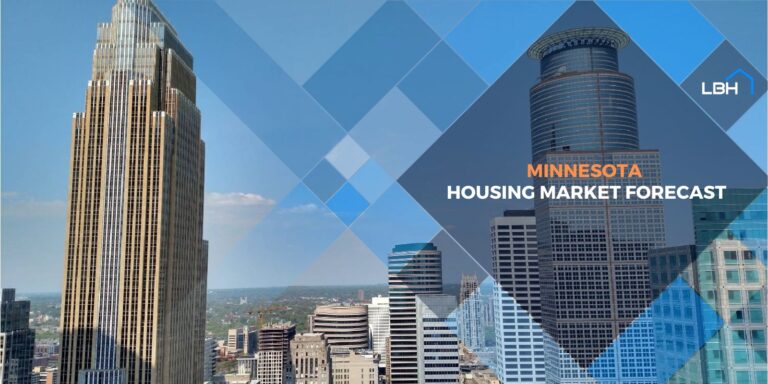Boston, Massachusetts, is renowned for its historical significance, rich culture, and small-town feel with city life perks. As such, the Boston housing market stands competitive and lucrative for homebuyers and real estate investors.
As of 2023, Boston real estate is defined by a limited supply of home listings and a steady buyer demand. While this has led to a slowdown in sales, home prices continue to increase, making it a strong seller’s market.
In this comprehensive guide, we’ll delve deeper into these trends shaping the Boston real estate market in 2023. We’ll also share home-buying tips and market forecasts.
Boston Real Estate Market Trends 2023-2024
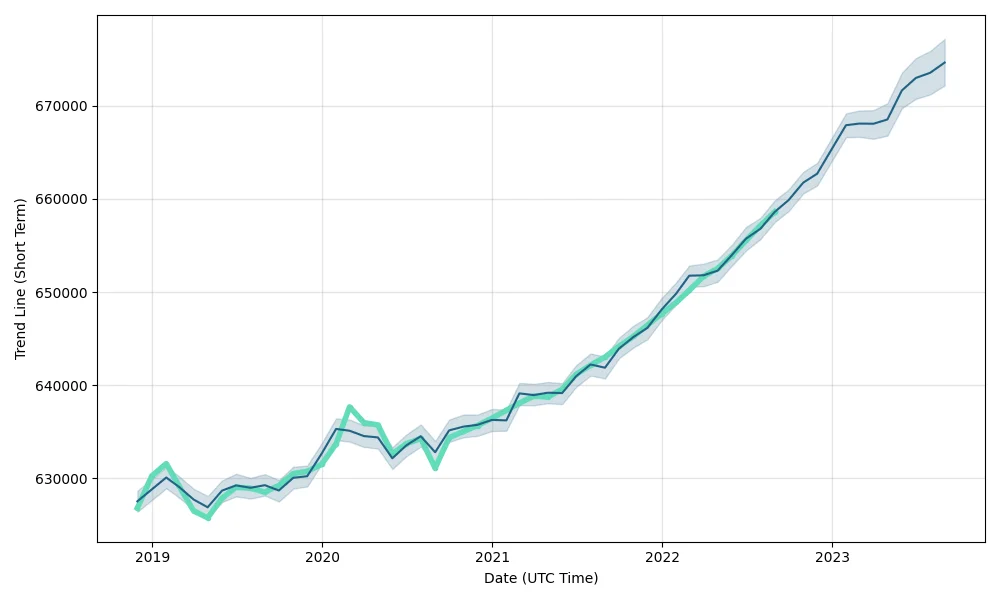
Economic conditions
As is the case with the rest of the country, Boston’s economy was not immune to the negative effects of the recent COVID-19 pandemic. This is characterized by business closures, migration outside the city, and low spending across industries.
However, the past year has seen significant improvement, marking an upward turn for the city’s economy.
While Boston’s population has declined since pre-pandemic numbers (estimated at 650,706 in 2022 residents versus 675,632 residents in 2020), the reopening of schools, businesses, and offices in the city is bringing students and young professionals back into the city.
These are just some of the many milestones Boston faced in 2023:
- As of January 2023, consumer spending increased by 26% versus January 2020.
- As of December 2022, tourism statistics were almost at par with December 2019 visits.
- As of December 2022, unemployment rates were down to 3% versus 15.8% in 2020.
Moreover, Boston’s economy is being driven by the tech, education, healthcare, and finance industries, providing a strong backbone to its real estate market.
Steady Buyer Demand
Boston has witnessed a significant shift in its real estate dynamics due to the COVID-19 pandemic.
It catalyzed a trend where many sought homes with additional space, both indoor and outdoor, leading to increased demand in suburban areas and neighborhoods with larger properties.
This shift is accentuated by the rise of remote work, allowing many to reconsider their living situations.
However, for those who can afford homes in big cities, Boston continues to be an appealing destination for these reasons:
- The city’s educational hubs, including Harvard University and the Massachusetts Institute of Technology (MIT), have reopened for face-to-face classes. This has drawn both domestic and international migrants back into the city.
- Boston’s vibrant culture, work opportunities, and progressive and efficient city life remain the foundation of its inherent charm.
Limited Supply of Homes
Like many other major cities in the U.S., interested buyers in Boston are facing a glaring reality: There is a limited inventory of homes for sale.
According to Time, Boston is one of the top 10 metro areas with the lowest current housing supply.
Data from the GBAR (Greater Boston Association of Realtors) presents the following inventory of Boston homes for sale as of September 2023:
- Single-family homes: 1,258 homes (a 16.2% decrease versus last year)
- Condominiums: 1,329 units (a 15.5% decrease versus last year)
Overall, Boston is reported to have 1 to 2 months’ worth of supply, which is significantly lower than the 6-month inventory standard for a normal, balanced housing market.
High Mortgage Rates and Interest Rates
In relation to the low inventory of Boston homes for sale, a major contributor is the higher mortgage rates and interest rates in the past year.
As such, homeowners are holding on to their houses instead of investing in new properties that pose higher rates.
Moreover, it is reported that many retirees and seniors have settled into their homes for long-term retirement.
Slowdown in Home Sales
Given the limited inventory, combined with high mortgage rates and overall economic uncertainty, Boston home sales have seen a decline versus last year.
According to August 2023 data, the decrease in Boston real estate sales is as follows:
- Single-family home sales have declined 25.9% versus August 2022.
- Condominium sales have declined 23.7% versus August 2022.
Increasing home prices
It’s worth noting, however, that despite the slowdown in home sales, Boston house prices have been on a consistent upward trajectory.
Factors such as limited inventory, competition among buyers, and the city’s continuous growth have contributed to this trend. Homeowners have taken advantage of this by selling their homes above the asking price.
As of September 2023, the median home price in Boston is as follows:
- Single-family homes: $849,950 (an 11.7% increase versus Sep 2022)
- Condominiums: $680,500 (an 8% increase versus Sep 2022)
That said, the Boston housing market in 2023 continues to see positive opportunities for sellers.

Boston Real Estate Market Forecast 2023-2024
Considering these Boston real estate market trends, the city seems to be facing a good balance between expected challenges and potential opportunities.
For homeowners, selling their properties can lead to healthy earnings.
For buyers, while the limited inventory may lead to bidding wars, their homes may lead to worthwhile investments.
As we examine the market further, future forecasts are essential to make informed decisions. Drawing insights from expert analysts, here are some predictions for the Boston housing market this year.
Overall Market Outlook
The Boston real estate market has shown resilience and adaptability in the face of various economic challenges.
It is expected to remain stable with a steady appreciation in home values. This is good news for sellers and investors looking to earn from their properties.
Moreover, the demand for Boston housing is predicted to continue to outstrip supply. However, growing building sentiment across the U.S. may see more home construction to pick up in the near term.
U.S. News’s Housing Market Index echoes these sentiments, highlighting that Boston’s housing market remains one of the most competitive in the nation. The city’s robust economy, driven by sectors like tech, healthcare, and education, ensures a consistent influx of professionals looking for housing.
Specific Trends to Watch in 2023
- Urban Revival: While the pandemic saw a shift towards suburban living, 2023 is witnessing an urban revival.
As businesses and offices reopen, there’s a renewed interest in city living, especially among young professionals.
- Condo Market Growth: The condo market in Boston is expected to see significant growth.
With the city’s population density and the convenience of downtown living, condos offer an attractive option for many. This is especially true for those who work in the city or cannot afford homes.
- Strong Rental Market: With the city’s student population and transient workforce, strong demand for rental properties in Boston will continue.
According to RentCafe, 65% of Boston households are occupied by renters as of July 2023. Rent prices continue to increase, now estimated at $3,970 on average.
As such, landlords can expect higher demand and rental yields, especially in neighborhoods close to universities and business districts.
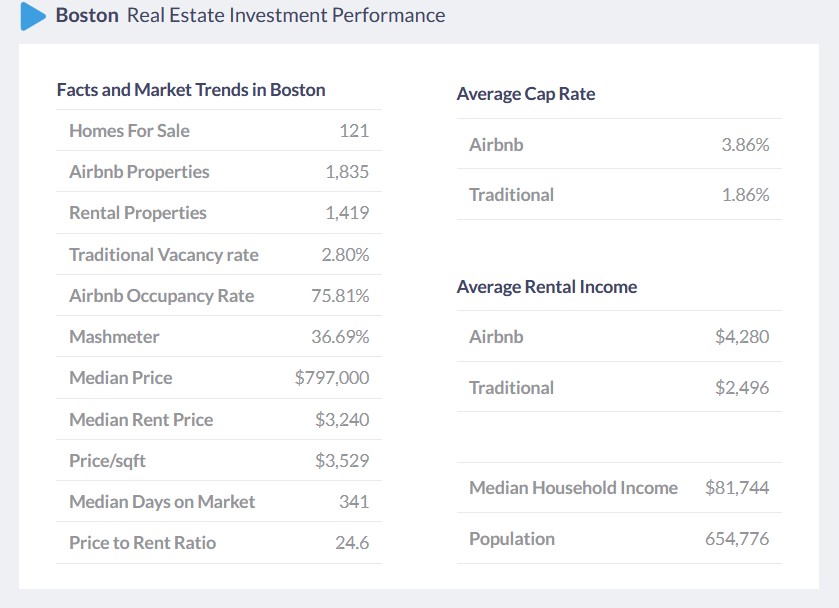
Investment Opportunities
For those looking to invest in the Boston real estate market, 2023 presents several lucrative opportunities:
- Rental Properties: Given the strong demand for rental units, especially in areas like Allston, Brighton, and Fenway, investing in rental properties can yield substantial returns.
- Fix and Flip: With the city’s older housing stock, there’s an opportunity for investors to buy, renovate, and sell properties at a profit, especially in historic neighborhoods.
- Condo Developments: As mentioned, the condo market is on the rise. Investing in condo developments, especially in areas with high walkability and access to amenities, can be a profitable venture.
Home Buying in Boston 2023
Should I buy a house in Boston in 2023?
The decision to invest in real estate is multifaceted, influenced by personal circumstances, market dynamics, and future predictions.
Considering the Boston real estate market trends and the city’s growth, 2023 seems to be a competitive yet promising year for buyers.
While they may face increasing home prices and mortgage rates, the year-on-year appreciation of homes makes it a worthwhile investment, especially for those looking to sell their property in the future.
Thorough research, understanding market dynamics, and consulting with real estate professionals are crucial before proceeding with any investment.
How much will home prices in Boston increase in 2023?
According to the one-year forecast of Norada Real Estate Investments, Boston house prices are estimated to increase by 3.8%. Boston homes for sale are forecast to see price hikes, given the current conditions in the city.
What are the best neighborhoods to buy a house in Boston in 2023?
Boston’s diverse neighborhoods cater to a range of preferences.
Historically popular areas like Beacon Hill, Back Bay, and South Boston have always been in demand.
However, neighborhoods like Dorchester, East Boston, and Somerville are emerging as favorites among the younger demographic, especially with their vibrant communities and relative affordability.
Here are some interesting facts to take note of about each neighborhood:
Beacon Hill
Beacon Hill is one of Boston’s historic and picturesque neighborhoods. With its narrow, gas-lit streets and federal-style row houses, it exudes old-world charm.
- Culture and Lifestyle: Known for its rich history, Beacon Hill is home to the Massachusetts State House and the Boston Common. The area boasts upscale boutiques, antique shops, and gourmet restaurants catering to a sophisticated crowd.
- Real Estate: Real estate in Beacon Hill is highly sought after, with many properties retaining their original architectural details. The area is predominantly residential, with brownstones and brick row houses being the most common property types.
Back Bay
Back Bay offers a blend of historic charm and modern luxury. Its tree-lined avenues, Victorian brownstones, and public gardens create a serene urban environment.
- Culture and Lifestyle: Home to the iconic Newbury Street, Back Bay is a shopping and dining haven. The neighborhood also hosts cultural landmarks like the Boston Public Library and the Prudential Center.
- Real Estate: Back Bay’s real estate market is robust, with Victorian brownstones and luxury condos dominating the landscape. Its central location and amenities make it one of Boston’s priciest neighborhoods.
South Boston
South Boston, affectionately known as “Southie,” is a vibrant neighborhood with a strong sense of community. Its waterfront and beaches add to its appeal.
- Culture and Lifestyle: Southie is known for its lively St. Patrick’s Day parade, local pubs, and community events. The area has seen significant development in recent years, with new restaurants and shops emerging.
- Real Estate: South Boston offers a mix of traditional triple-deckers, new condos, and renovated lofts. Its growing popularity, especially among young professionals, has led to a surge in real estate demand.
Somerville
Just north of Boston, Somerville is eclectic and artsy. Its squares, like Davis Square and Union Square, are hubs of activity and culture.
- Culture and Lifestyle: Somerville is known for its vibrant arts scene, with numerous festivals, theaters, and galleries. The neighborhood also boasts a diverse culinary scene, from trendy cafes to ethnic eateries.
- Real Estate: Somerville offers a mix of single-family homes, multi-family units, and condos. Its growing popularity, driven by its cultural offerings and proximity to Boston, has led to a buoyant real estate market.
Dorchester
Dorchester, Boston’s largest neighborhood, is diverse and dynamic. It boasts a mix of historic homes, green spaces, and bustling commercial areas.
- Culture and Lifestyle: The neighborhood is known for its cultural diversity, with a rich tapestry of ethnic restaurants, festivals, and community events. Parks like Franklin Park add to its recreational appeal.
- Real Estate: Dorchester’s real estate landscape is varied, with single-family homes, multi-family units, and new developments. Its affordability relative to other Boston neighborhoods makes it attractive to a wide range of buyers.
East Boston
East Boston, often referred to as “Eastie,” offers stunning views of the Boston skyline and harbor. Its waterfront location and green spaces like Piers Park make it unique.
- Culture and Lifestyle: Eastie is known for its rich immigrant history, which is reflected in its diverse culinary scene. The neighborhood is also home to Logan International Airport.
- Real Estate: East Boston has seen significant real estate development in recent years. While it offers a mix of historic homes and new condos, its relative affordability and proximity to downtown Boston make it a rising star in the real estate market.
What are the best tips for homebuyers in the Boston real estate market in 2023?
As interested home buyers face fierce competition in the Boston housing market, it is essential to make a knowledgeable decision before jumping on the first interesting property.
Keep these tips in mind:
- Stay abreast with the latest Boston real estate news, especially given the ever-changing landscape in the city.
- Prioritize location, especially proximity to public transport, schools, and amenities.
- Explore up-and-coming neighborhoods outside the city hotspots. Consider future urban development plans and how they might influence property values.
- Engage with a local realtor with a deep understanding of the Boston housing market.
- Be financially prepared. Given the demand-supply dynamics, properties in Boston often receive multiple offers, sometimes going above the asking price.
Boston Real Estate: A Worthwhile Investment
Boston’s inherent charm isn’t just rooted in its historical landmarks or prestigious educational institutions. It is a blend of the old and new, where cobblestone streets meet modern skyscrapers, creating a unique experience for locals.
Coupled with its growing economy and progressive society, Boston remains a hotspot for real estate activities.
The Boston real estate market suggests an environment teeming with opportunities yet rife with competition.
While this may keep interested investors on the fence, a look into the city’s appreciating home values and high demand still point to a profitable investment overall.
